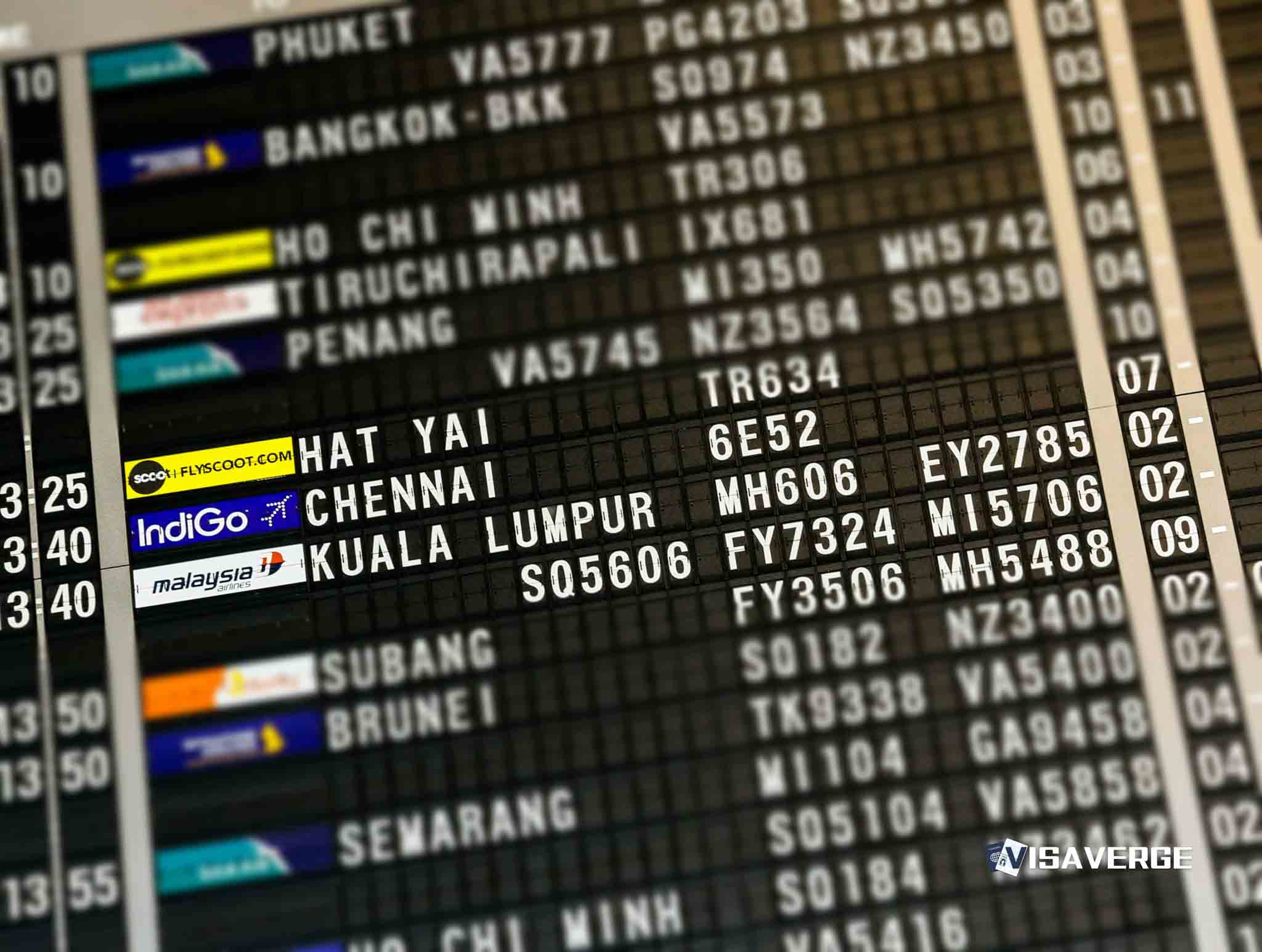Kuwait has announced a new policy that allows people whose citizenship has been revoked to travel and work during a four-month grace period starting July 19, 2025. This move comes after the government revoked over 1,060 citizenships in July 2025, the largest single action of its kind in the country’s history, as part of a wider campaign against citizenship fraud.
The new rules give affected individuals a temporary window to adjust to their new status. During the four-month grace period, people can use their Kuwaiti passports to travel abroad and continue working in Kuwait, though only in non-supervisory roles. The government says this policy aims to help people arrange new travel documents or residency permits from their country of origin before their Kuwaiti documents become invalid.

Key Details of the Policy
- Four-Month Grace Period for Travel:
From July 19, 2025, those who lost their Kuwait citizenship under the “Outstanding Services” or “Grand Acts of Worship” clauses can use their Kuwaiti passports for international travel for up to four months. This gives them time to get new documents or residency permits from their home country. - One-Year Window to Regularize Status:
Affected individuals have until July 19, 2026, to regularize their legal status. This means they must either reclaim citizenship from their original country or get legal residency documents in Kuwait. -
Three-Month Proof Requirement:
Within the first three months of the grace period, individuals must show proof that they have started the process to regularize their status. This could include applications for new passports or residency permits at their embassy. If they do not provide this proof, they risk losing benefits such as work rights, education access, and housing. -
Work and Education Rights:
During the grace period, people can keep working in Kuwait, but only in jobs that are not supervisory. They can also continue their education at all levels, including university and postgraduate programs, and keep any scholarships they had before their citizenship was revoked. -
Appeal Mechanism:
The government has set up a Citizenship Withdrawal Grievance Committee under Cabinet Resolutions 207/2025 and 493/2025. This committee allows people to appeal the decision to revoke their citizenship.
Background and Context
Kuwait’s campaign against citizenship fraud began in early 2024 and has led to the revocation of citizenship from over 40,000 people. Many of these cases involve people who were naturalized through marriage or other questionable means. The July 2025 wave, which saw 1,060 citizenships revoked, focused on cases involving forged documents, fake identities, and illegal naturalizations, including the use of identities of deceased persons.
The government says these actions are necessary to fight corruption, protect national resources, and keep the legal system fair. The crackdown includes DNA testing, legal checks, and working with other countries, especially Syria, to investigate cases with Syrian links.
However, international observers and human rights groups have raised concerns. They worry about the broad powers used to revoke citizenship, the lack of court review, and the risk of leaving people stateless. Women who gained citizenship through marriage are especially at risk. Critics say the process is not transparent and does not give people enough chance to defend themselves.
Practical Implications for Affected Individuals
People affected by the policy must act quickly to protect their rights:
- Start Regularization Early:
Begin the process to get new citizenship or residency documents within the first three months. This is needed to keep work, education, and housing benefits. -
Travel Arrangements:
Use the Kuwaiti passport to travel abroad during the four-month grace period. After that, make sure to have valid travel or residency documents from another country. -
Work and Study:
Continue working in non-supervisory roles and studying at all levels during the grace period. Scholarships and housing remain available for now. -
Appeal Option:
If you believe your citizenship was wrongly revoked, you can appeal to the Citizenship Withdrawal Grievance Committee.
Official Statements and Sources
The Kuwaiti Ministry of Interior announced the new rules, explaining the steps for work, travel, and housing for those with revoked citizenship. The Official Gazette of Kuwait started publishing the names of affected individuals on July 19, 2025. Cabinet Resolutions 207/2025 and 493/2025 set out the appeal process for those who want to challenge the decision.
Future Outlook
The Supreme Nationality Committee will keep investigating cases of fraudulent citizenship. More revocations may happen as the government continues its campaign. At the same time, the government says it will give people a fair chance to regularize their status and avoid sudden displacement. Human rights groups are expected to keep watching the situation and push for more transparent and fair procedures.
Campaign against citizenship fraud begins
1,060 citizenships revoked
Grace period for travel starts
Official Gazette publishes names of affected individuals
Deadline to regularize legal status
Summary Table of Key Policy Elements
| Aspect | Details |
|---|---|
| Grace Period Start Date | July 19, 2025 |
| Passport Validity for Travel | 4 months from decree publication |
| Legal Status Regularization | 1 year to obtain citizenship or residency documents |
| Proof of Regularization Start | Must be submitted within 3 months |
| Work Rights | Allowed in non-supervisory roles |
| Education Rights | Continue studies and retain scholarships |
| Appeal Process | Via Citizenship Withdrawal Grievance Committee (Cabinet Resolutions 207/2025 & 493/2025) |
| Number of Citizenship Revocations | Over 1,060 in July 2025; 40,000+ since early 2024 |
Practical Tips for Affected Individuals
- Contact Your Embassy:
Reach out to your country’s embassy in Kuwait as soon as possible to start the process for new documents. -
Keep Records:
Save all documents and proof of your applications for citizenship or residency. You will need to show this to keep your rights during the grace period. -
Monitor Official Announcements:
Check the Official Gazette of Kuwait regularly for updates and your name on the list of affected individuals. -
Seek Legal Advice:
If you are unsure about your rights or the appeal process, consider getting legal help.
Official Resources
For more information on citizenship and residency rules in Kuwait, visit the Kuwaiti Ministry of Interior.
As reported by VisaVerge.com, this policy shows Kuwait’s effort to balance strict legal enforcement with some humanitarian support by giving people time to adjust and avoid sudden loss of rights.
In summary, Kuwait’s new policy gives people whose citizenship has been revoked a four-month grace period to travel and work, plus a year to regularize their legal status. While the government says this is needed to fight fraud, many worry about the risk of statelessness and the fairness of the process. Affected individuals should act quickly to protect their rights and take advantage of the support offered during this transition.
Learn Today
Grace Period → A temporary timeframe enabling revoked citizens to travel and work before losing citizenship benefits.
Citizenship Revocation → Government removal of a person’s nationality, often due to fraud or legal violations.
Regularization → The process of obtaining legal residency or reclaiming citizenship to normalize one’s status.
Appeal Mechanism → A formal procedure allowing individuals to challenge decisions like citizenship revocation.
Non-Supervisory Roles → Job positions without authority to manage or supervise other employees.
This Article in a Nutshell
Kuwait’s new four-month grace period lets revoked-citizens travel and work non-supervisor jobs. This policy aids adjustment amid record 1,060 citizenship revocations, supporting legal regularization and appeals through a grievance committee, balancing strict fraud crackdowns with humanitarian considerations in 2025.
— By VisaVerge.com







